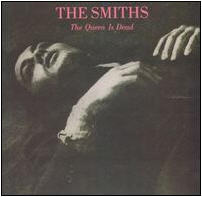- NEW YORK - A Harvard University sophomore’s debut novel has been permanently withdrawn by the book’s publisher and her two-book deal canceled after allegations of literary borrowing piled up against her.
Little, Brown and Co. will not publish a revised edition of Kaavya Viswanathan’s "How Opal Mehta Got Kissed, Got Wild, and Got a Life" nor will it publish a second book, Michael Pietsch, Little, Brown’s senior vice president and publisher, said in a statement Tuesday.
Little, Brown, which had initially said the book would be revised, declined to comment on whether Viswanathan would have to return her reported six-figure advance.
The decision caps a stunning downfall for Viswanathan, 19, a Harvard sophomore whose novel came out in March to widespread attention. Viswanathan, who was 17 when she signed the deal, did not immediately return calls seeking comment Tuesday.
 All this could have been avoided had the young lass invested a mere $1.09 in iTunes and downloaded a classic song from the Smiths' The Queen Is Dead album called "Cemetry Gates":
All this could have been avoided had the young lass invested a mere $1.09 in iTunes and downloaded a classic song from the Smiths' The Queen Is Dead album called "Cemetry Gates":- You say : ’ere thrice the sun done salutation to the dawn
And you claim these words as your own
But I’ve read well, and I’ve heard them said
A hundred times (maybe less, maybe more)
If you must write prose and poems
The word you use should be your own
Don’t plagiarise or take on loan
There’s always someone, somewhere
With a big nose, who knows
And trips you up and laughs
When you fall
Who’ll trip you up and laugh
When you fall
You say : long done do does did
Words which could only be your own
And then produce the text
From whence was ripped
(some dizzy whore, 1804)
- "Cemetry Gates" was Morrissey's direct reponse to critics who had cried foul over his use of texts written by his some of his favorite authors, notably Shelagh Delaney and Elizabeth Smart. Oscar Wilde, who was also accused of plagiarism, figures as a patron saint of Morrissey's in the song's lyrics. Like Wilde, Morrissey regards the appropriation of texts as not at all problematic and, in fact, a common artistic practice. Wilde said "Talent borrows, genius steals", and Morrissey agreed: Wilde's epigram was etched in the vinyl run-out grooves of the first single off the album, "Bigmouth Strikes Again".
- In Cabot’s "The Princess Diaries," published by HarperCollins, the following passage appears: "There isn’t a single inch of me that hasn’t been pinched, cut, filed, painted, sloughed, blown dry, or moisturized. ... Because I don’t look a thing like Mia Thermopolis. Mia Thermopolis never had fingernails. Mia Thermopolis never had blond highlights."
In Viswanathan’s book, page 59 reads: "Every inch of me had been cut, filed, steamed, exfoliated, polished, painted, or moisturized. I didn’t look a thing like Opal Mehta. Opal Mehta didn’t own five pairs of shoes so expensive they could have been traded in for a small sailboat."
No comments:
Post a Comment